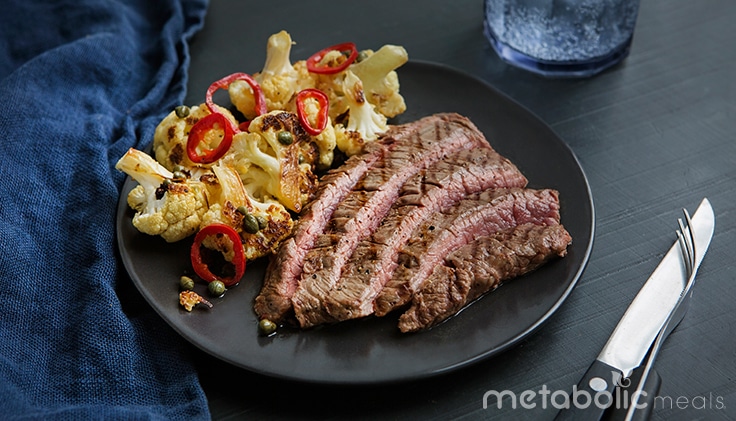With every new year comes a new wave of celebrity-endorsed dieting trends. When you scroll through Instagram and see pictures of perfect-looking people claiming they got that way with a certain strategy, of course you might pause and consider following suit. You may adore Beyoncé or Jennifer Aniston, but don’t let these A-listers lead you astray.
When we’re most motivated for change, anything new and flashy can seem like the secret to being fit. True, some celebrities have benefited from sound nutritional plans like The Mediterranean Diet, but they didn’t get that way with fad dieting. These trends aren’t sustainable, and as the British Dietetic Association argues, most celebrity-endorsed diets are outright dangerous to your health.
Take, for example, The Baby Food Diet, created by trainer-to-the-stars Tracy Anderson and championed by Jennifer Aniston and Lady Gaga. With this plan, you eat baby food twice a day, and a (not jarred) low-calorie dinner. Anderson claims it eliminates toxins, although many of the nutrients needed for detoxifying are missing from the diet. In reality, this is a crash diet that’s too low in calories to last.
But if a baby food diet feels too close to actually eating, you could try Beyoncé’s Master Cleanse. You consume only a beverage made of warm water, lemon juice, cayenne pepper, and maple syrup for three to 10 days. It’s a harsh way to lose weight, and you’ll inevitably gain it right back, but you could accomplish a lot in all the time you save cutting out chewing.
And then there’s this gem: Snooki’s Cookie Diet. You eat up to nine 60-calorie cookies plus a small dinner every day. Yes, the massive calorie restriction will probably make you lose weight — and suffer massive nutrient deficiencies. But hey, you get to eat cookies!
While celebrities may have used the diets they’re promoting for a short time, it’s very likely that they’re usually eating nutrient-dense foods multiple times a day and exercising.
Why Fad Diets Fail
Even the more convincing fad diets have major pitfalls. First, they rarely emphasize real health; they focus on superficial results. But what many people don’t realize is when you give your body the nutrients it needs to thrive, you also create the perfect environment to lose weight.
Second, there’s no exit strategy. For long-term success, healthy eating must become part of your daily life. Say you do a low-calorie, all-juice diet for a week and lose 10 pounds — then what? Quick, unhealthy weight loss results in hormone changes that prime you for gaining the weight back quickly. Short-term fad diets set you up for failure once they’re over.
And finally, the misinformation fad diets circulate will leave you frustrated and less motivated to achieve your health goals. Repeatedly gaining the weight you lost back is a vicious cycle that wears on your body and mind. A lot of people go into these diets filled with optimism, but when long-term results don’t happen they get frustrated and give up on their goals.
So, if Snooki’s Cookies aren’t the answer, what is? Here are three simple ways to focus your attention on things that will help you achieve your New Year’s resolution to live healthier.
1. Think Health First
Don’t waste time looking for the latest and greatest fad diet. Instead, commit to eating healthy foods at least 80 percent of the time. Consistently eating high-quality proteins, vegetables, and healthy fats will improve your well-being in a multitude of ways while keeping your body in optimal fat-burning mode.
If vegetables are a struggle for you, start by making friends with a few of the most nutrient-dense foods. A single serving of spinach will give you a healthy kick of potassium, vitamin K, vitamin A, manganese, folate, and iron. Meanwhile, greasy takeout will probably give you a hefty dose of fat, an oversized serving of sodium, and next to zero nutrients. If spinach isn’t your thing, work your way through a list of other nutrient-packed foods, and try out new recipes until you find more you like. It will certainly be more enjoyable than baby food.
2. Use a Cheat Meal to Your Advantage
Cheat meals should be earned. That means you should designate a meal or two per week when you enjoy your favorite “unhealthy foods,” but only if you’ve eaten well all week leading up to it. This method works very well when done correctly because it raises leptin levels, which speeds up metabolism, and it allows you to have fun. If a diet makes you miserable, it will never be sustainable — no matter how much willpower you have. The mental reprieve of a cheat day gives you a little reward for your successes each week without hurting your efforts.
3. Be More Active
The benefits of exercise go well beyond burning calories. There’s also detoxification, balancing hormones, and improving your immune system. While your main health goals might be weight-related, physical activity can also improve your mood, give you more energy, help you sleep better, and lower the risks of many chronic diseases like Type 2 diabetes, Alzheimer’s disease, and some forms of cancer.
Exercise helps bring everything together to form a healthy lifestyle. You’ll be more motivated to eat well when exercise is a regular part of the routine. If you’re not an exercise enthusiast and the thought of going to the gym seems unbearable, try a variety of activities and see what you like. You may be surprised how much you begin to enjoy nontraditional forms of exercise such as hiking, rock climbing, biking, swimming, or intramural sports.
If the new year has you all fired up to make a change, don’t pursue trendy diets that won’t work. If you focus on developing healthy habits that you can continue indefinitely, this time next year you’ll be celebrating a whole new you.










